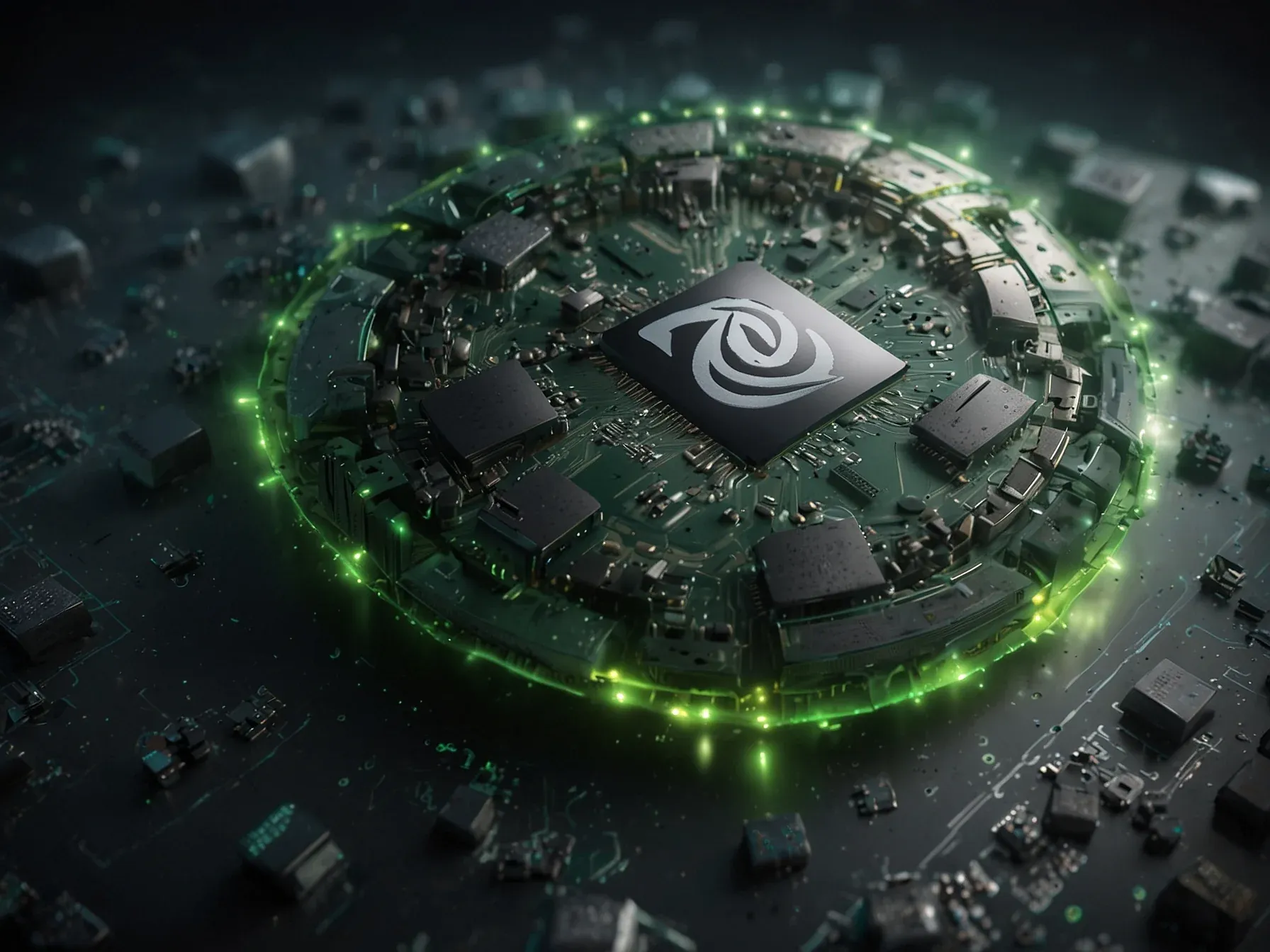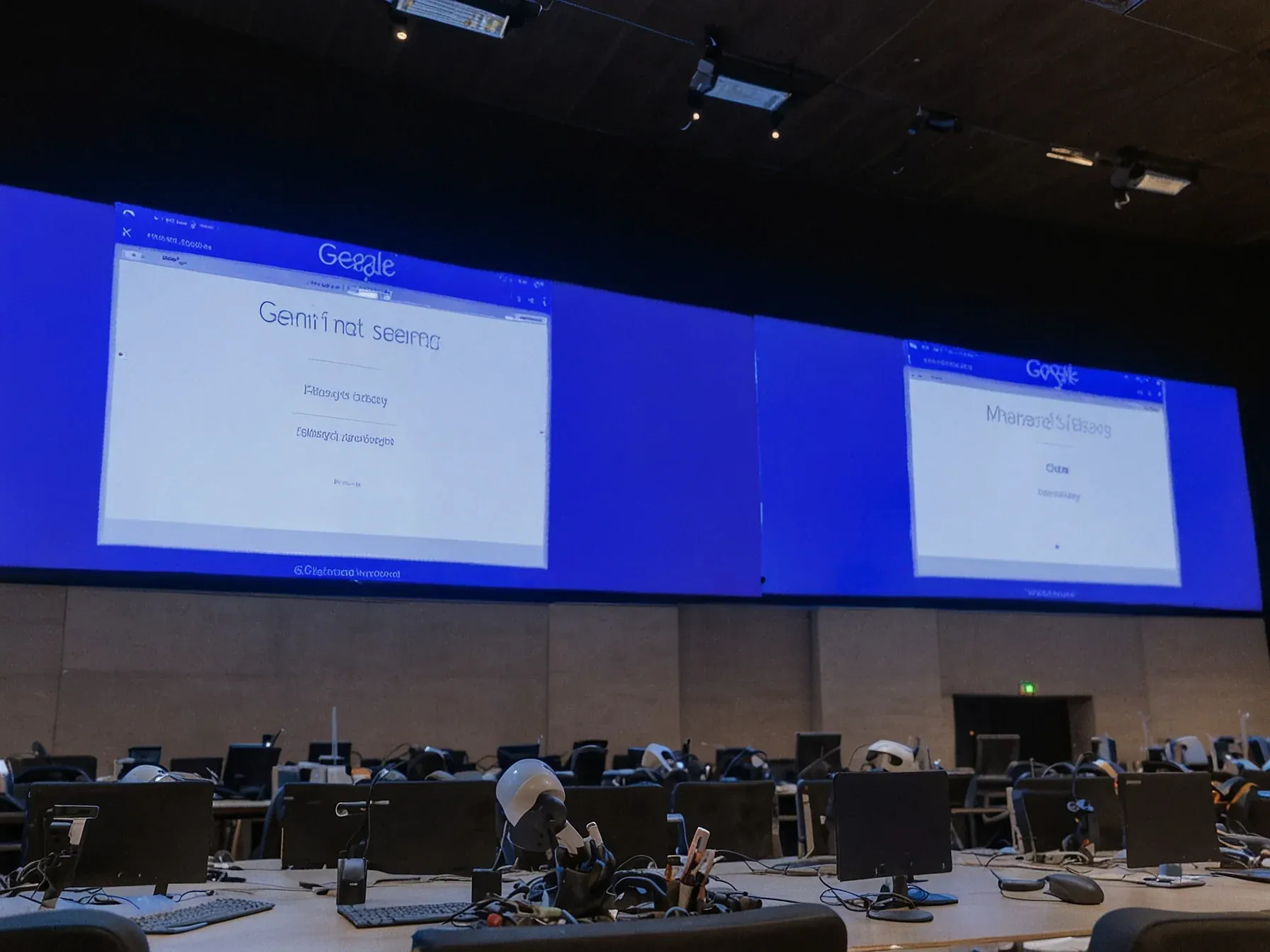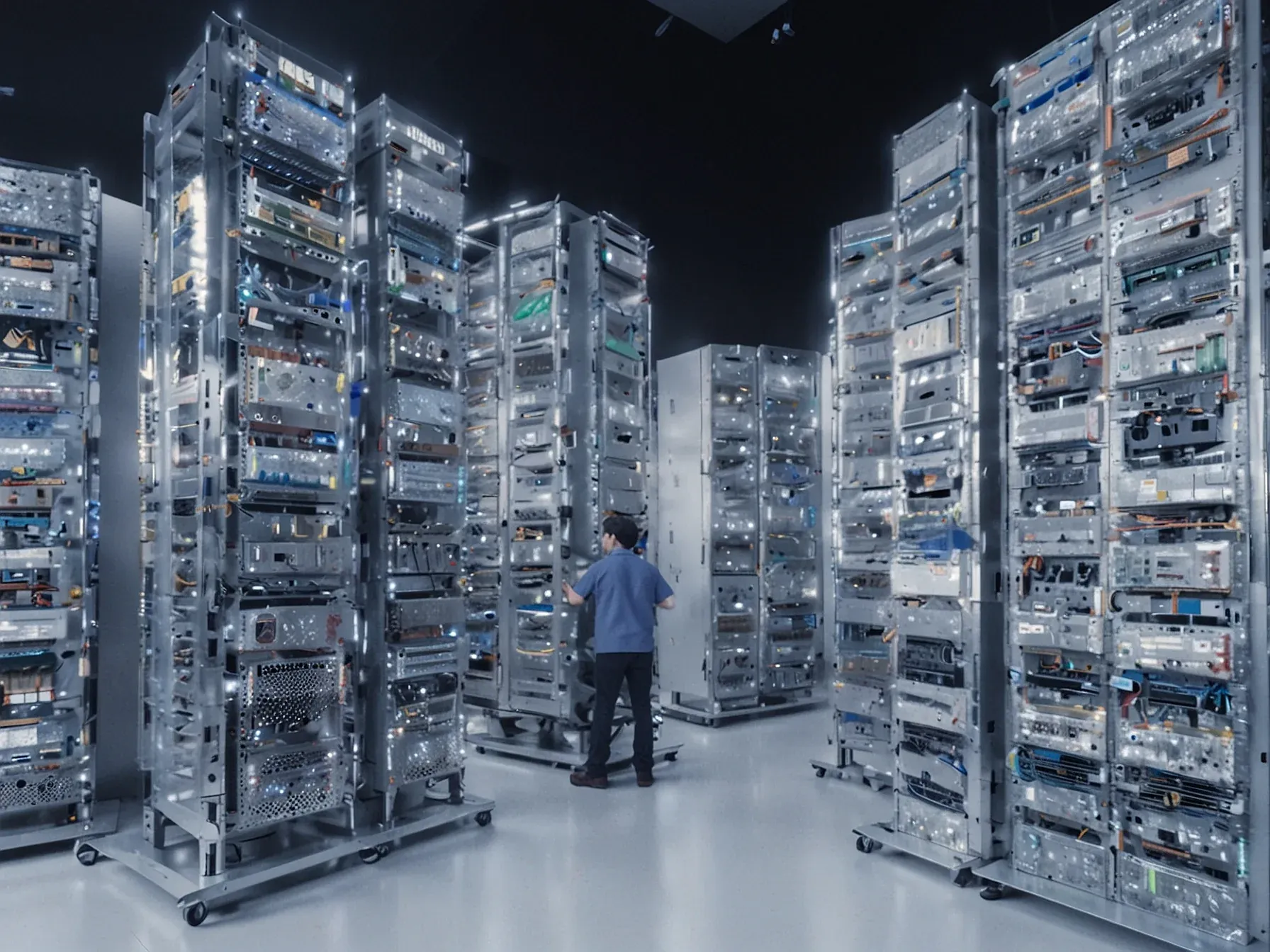
Editorial illustration for Nvidia Earnings Surge as AI Chip Demand Skyrockets with Gemini 3 Launch
Nvidia Rides AI Chip Wave with Record Earnings Surge
Nvidia earnings highlight chip demand as AI expands, Gemini 3 announced
The artificial intelligence gold rush is heating up, and Nvidia is riding the wave like a silicon surfboard. Wall Street got a front-row seat to the AI chip bonanza this week, as the company's earnings report revealed just how critical its technology has become to the global tech ecosystem.
Investors and tech watchers are buzzing about Nvidia's explosive growth, driven by an insatiable demand for AI processing power. The company's quarterly results aren't just numbers, they're a roadmap of the technological transformation sweeping through industries from cloud computing to scientific research.
With the recent announcement of Gemini 3 and skyrocketing chip sales, Nvidia is positioning itself as the critical infrastructure provider for the AI revolution. The numbers tell a compelling story of technological momentum that's reshaping how businesses and researchers think about computational power.
But the real narrative goes beyond spreadsheets and sales figures. It's about a fundamental shift in how we approach computing, computation, and artificial intelligence itself.
It's basically that AI is taking over the world and Nvidia chips will be sorely needed to power the technology revolution that is already underway. He backed it up by saying that the company reported record quarterly sales, and in the call executives reiterated that they have about $500 billion worth of unfilled orders, and this pep talk helped Nvidia recover a bit from the sell-off that it has been experiencing in the past few weeks, which I think you and I have both been watching with interest. Max Zeff: Yeah, it's become a theme where every time Nvidia has earnings, Jensen just gets on a call and defends AI industry and why everything is going fine. I remember a few months ago he was defending how scaling laws were still intact, and now it's just the AI bubble at large.
Nvidia's recent earnings report reveals a key moment for AI technology. The company's record quarterly sales and massive backlog of $500 billion in unfilled orders underscore the explosive demand for AI chips.
Gemini 3's launch appears to be accelerating this trend, with industry experts suggesting AI is rapidly transforming technological landscapes. Nvidia's strategic position seems secure, despite recent market volatility.
The surge suggests something fundamental is shifting in tech infrastructure. Powerful AI chips are no longer a luxury but a necessity for companies racing to build modern technologies.
Still, questions remain about how sustainable this growth trajectory might be. Nvidia's executives seem confident, pointing to unusual interest in their semiconductor solutions.
For now, the message is clear: AI's expansion is creating an insatiable appetite for high-performance computing hardware. Nvidia is perfectly positioned to meet this demand, turning technological potential into tangible market gains.
The company's ability to maintain momentum will likely depend on continued idea and the real-world performance of AI technologies like Gemini 3.
Further Reading
- NVIDIA Q1 2026 Earnings Conference Call - Rev
- Micron vs. NVIDIA: One AI Chip Stock is Poised to Win Big in 2026 - Zacks Investment Research
- NVDA 2026 Q3 Earnings Call - NVIDIA Corporation - Perplexity
- NVIDIA's Next Leg Higher May Have Started at CES - MarketBeat
Common Questions Answered
How much in unfilled orders does Nvidia currently have for AI chips?
Nvidia currently has approximately $500 billion in unfilled orders for AI chips, highlighting the massive global demand for AI processing technology. This substantial backlog indicates the critical role Nvidia plays in powering the ongoing AI technology revolution.
What is driving Nvidia's recent earnings surge in the AI market?
Nvidia's earnings surge is primarily driven by the explosive demand for AI processing power, particularly with the launch of technologies like Gemini 3. The company's record quarterly sales reflect the increasing need for advanced AI chips across the global tech ecosystem.
How is the Gemini 3 launch impacting Nvidia's market position?
The Gemini 3 launch is accelerating the demand for AI chips and reinforcing Nvidia's strategic position in the technology market. Industry experts suggest that this launch is part of a broader transformation in technological landscapes, with AI becoming increasingly central to technological innovation.








